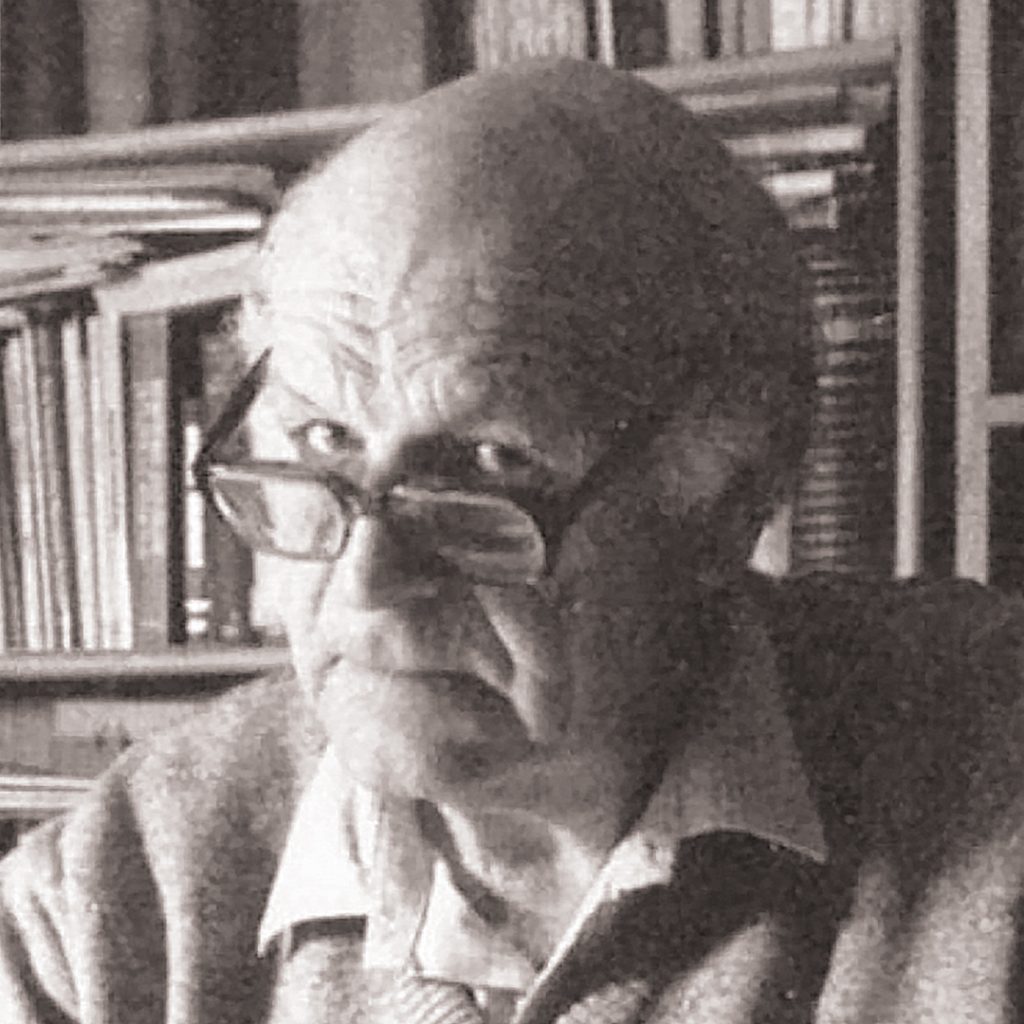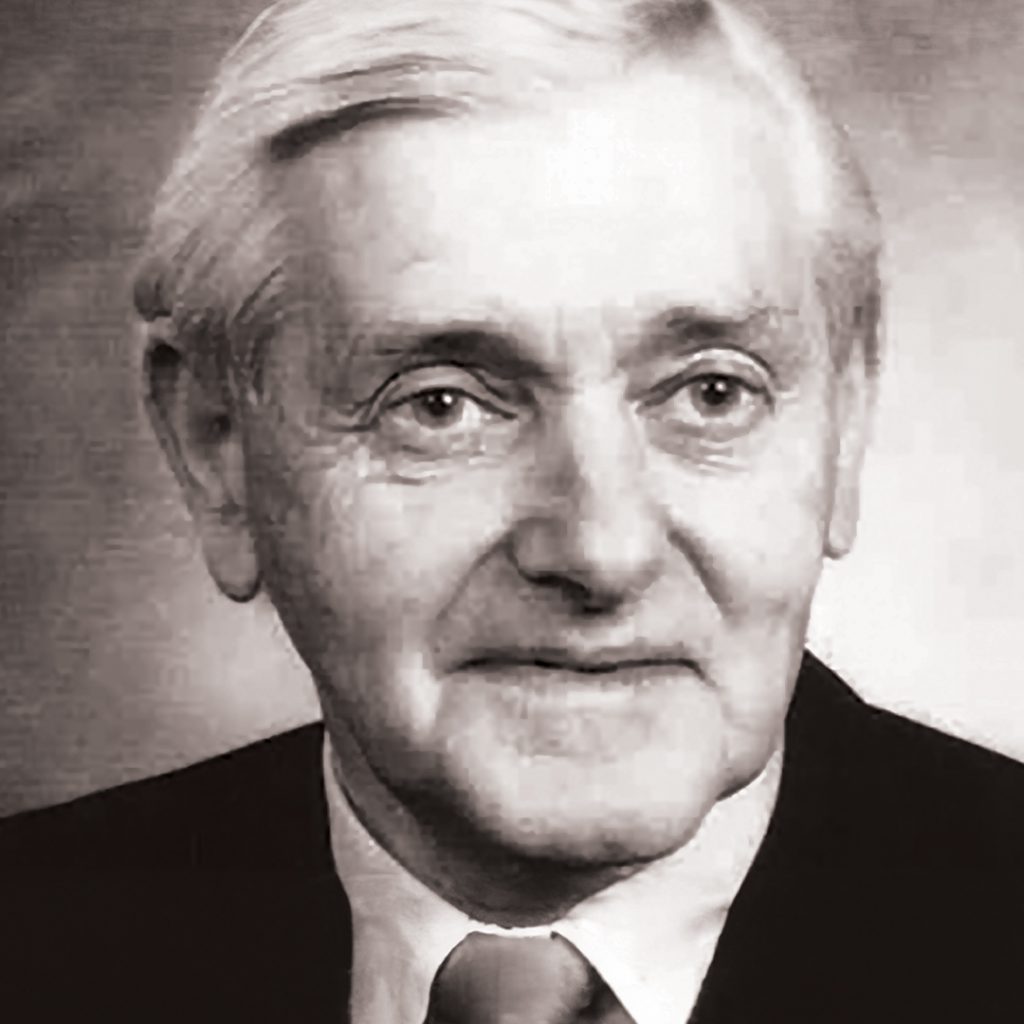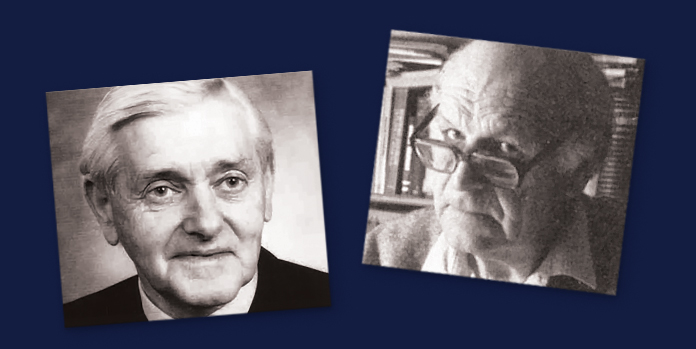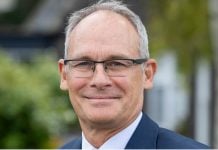As First XVIII football teammates and fellow members of Morris House, Gordon Trinca AO OBE (OM 1939) and John Birrell ISO OAM (OM 1941) could never have predicted that they would go on to become two of Victoria’s most important road safety pioneers.
Working in senior medical roles from the 1950s, they saw the effects of road trauma at a time where seatbelts were optional and drink driving was commonplace. Both felt the need to stand up for changes that, at first, were anything but popular.
John Birrell: “Alcohol, not speed, is the greatest killer on our roads.” (1957)

When he took up his role as the Assistant Coroner’s Pathologist in 1956, John Birrell was tasked with drawing blood samples from drivers involved in accidents and quickly saw the reality of road trauma.
Upon being promoted to Melbourne’s Police Surgeon in 1957 – a position he would hold for 20 years – within weeks he told the media: “If a compulsory blood test were given to everyone associated with a serious accident, this state would be rocked by the results.”
His estimate that around 60% of accidents involved alcohol consumption contradicted members of the liquor industry, who insisted the figure was closer to 5%.
“Dad got into trouble with the Hotels Association, the RSL, Carlton United Breweries – they tried to shut him down,” says son Mike Birrell. “He also fought plenty of backlash from the government including the then Premier Henry Bolte and other senior politicians, but he didn’t stop for anything.”
On call 24 hours a day, John was regularly called to traffic accidents and his exposure to the carnage on Melbourne roads further aroused his anger. He was horrified at the increasing number and severity of fatalities and injuries he witnessed.
With powerful interests set against legislative change, John knew he would have to work hard to win over key players. He published his own research on drink driving, speeding and seatbelt use, worked closely with the media to disseminate his findings, and delivered lectures – complete with shocking photos from crash sites – to convince the people he needed on his side.
“One of the smartest things my father did was to take senior politician and later Premier Lindsay Thompson out on Friday and Saturday nights to see these crashes up close. Lindsay had been a strong voice against the changes my father was seeking.
“After his experiences on those nights Lindsay went back to the government and said: ‘We do have a problem, and it’s not John Birrell,’” says Mike.
Gordon Trinca: [Our society] “still puts mobility ahead of safety.” (1986)

The son of a revered doctor, Gordon Trinca established his medical career as head of the surgical unit at Preston and Northcote Community Hospital. There, he became “fed up with stitching up” the victims of road accidents – a reality he knew was preventable.
“Dad knew he needed to improve the situation, not just keep dealing with it as it was,” says son Stephen Trinca (OM 1968). “He had a holistic perspective, and that meant he was focused not just on prevention, but on the care people received in the ambulance and in the emergency room.”
Aware that the state government had little interest in road safety reform at the time, in the 1960s Trinca began collecting statistics which he would later use to support his case for change.
He also began spending long hours at hospital during peak accident periods. Leading by example, he gradually embedded the practice of surgeons remaining on site, rather than on call, ready to make the all-important first assessment of crash victims.
Later, Gordon would go on to play an influential role in the establishment of Victoria’s Mobile Intensive Care Ambulance (MICA) service in 1971 – one of three in the world at that time.
Gordon was Chair of the highly regarded Royal Australasian College of Surgeons’ Road Trauma Committee from 1975 to 1993, and spent long hours campaigning for wide ranging road safety changes across politicians and decision-makers, and through the media.
“Dad spent many years working in collaboration with people like John Birrell, dealing with all the political issues that came up while striving to introduce new legislation,” adds son Simon Trinca (OM 1965). “Political consensus was key to getting the results he was looking for.”
Gordon became internationally recognised for his pioneering work on road trauma, and served as both a member of and consultant to several significant groups including the World Health Organization’s Expert Advisory Panel on Accident Prevention.
Between them, John Birrell and Gordon Trinca are responsible for many of the safety measures we take for granted today. In 1970, through their direct campaigning, they saw Victoria achieve a world first with the introduction of compulsory seatbelt legislation. Random breath testing, a blood alcohol limit of 0.05, helmets for cyclists as well as the way hospitals prepare for and manage road trauma would follow.
Their willingness to speak up, despite widespread opposition, has saved an immeasurable number of lives.



